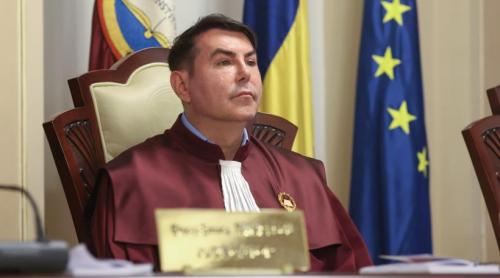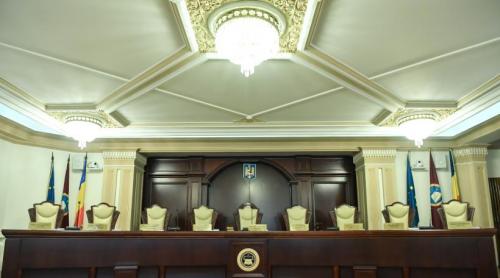
Faced with the rebirth of the Superpower politics of Russia, visible due to the South-Ossetian and Abkhazian crisis in August 2008, the EU has two problems to solve.
Faced with the rebirth of the Superpower politics of Russia, visible due to the South-Ossetian and Abkhazian crisis in August 2008, the EU has two problems to solve. On one hand, how to re-freeze the Georgian conflicts heated imprudently by President Saakaşvili. On the other hand, how to avoid repeating the Georgian scenario in other states that used to be part of the former Soviet Union. In this context, Brussels is facing a dead-end. The situation dead-end lies in the fact that Russia, after the unilateral recognition of the independence of South Ossetia and Abkhazia, has transferred these names from the list of frozen conflicts on the one of the solved conflicts (along with Kosovo!). Starting from this blockage, a 2nd Helsinki (i.e. a new Conference for cooperation and security in "Great Europe"), as proposed by the European Parliament and what appears to be the option of President Medvedeev, appears as a path to an effective and sustainable solution. The EU should promote it vigorously. The inspirational dead-end can be seen in the signals of agreement with the authoritarian regime in Belarus to reward it for not taking part in the Russian pro-secessionist operation in Georgia, with the hope to create a fissure between Minsk and Moscow or an omission in the case of Azerbadjan when it will come to the states whose territorial integrity is protected by the EU. An adequate strategy against the contagiousness would mean identifying the structural vulnerabilities of the states in danger. There are three vulnerabilities: the cultural-identity division, the political instability, and the economic fragility.
The identity crises that trouble independent European member states with solid Soviet background are normal in any after-imperialism order. They threaten to fragment the respective countries, as a result of the cultural phenomena of segregation and of the consecutive secession movements. In order to save their territorial integrity under the conditions of self-determination of the ethno-cultural communities, the EU must offer them the prospect of access into transnational security systems of democracy created after its model. For states like Ukraine or Moldova, the economic integration, the political association and institutional convergence with the EU are the only preventive strategies against the danger of disintegration. Political instability can be fought against only by strengthening the real democracy. The current symbolical democracy hides old authoritarian practices under a chaotic and sterile pluralism, which leads to an ongoing internal struggle to achieve political power, not related to the social agenda and outside public control. The EU should support the “marked” states in building a mechanism of control and inter-institutional equilibrium characterized by transparency, openness, responsibility and decentralization. Supporting certain semi-dictators based on the sole criterion of their so-called pro-Occidentalism, measured solely by an anti-Russian rhetoric, is an error in favor of the Russian neo-imperialism. The fragility of the economy can be treated with massive and properly directed infusions of European capital, with cumulative stimulation of an appropriate internal strategy of domestication (social reintegration) for the transition’s oligarchs. All the operations that led to the oligarchs ruling the society should be discouraged, while the productive speculations should be supported, the durable development should be preferred in favor of the conjuncture profits, and the middle class should be supported by bringing back the improperly gained fortunes into the public budget using adequate fiscal policies. Consolidated this way, the states in the common neighborhood of Russia and EU will be instrumental partners in negotiating the new multi-polar international order. Otherwise, the EU must be ready for another crisis meeting and calls for donors able to finance after-conflict rehabilitations. In the absence of a preventive policy, Europe will consume more to take care of itself than to be able to walk tall. It is (still) a choice. The choice has to be made now!
Citește pe Antena3.ro


















